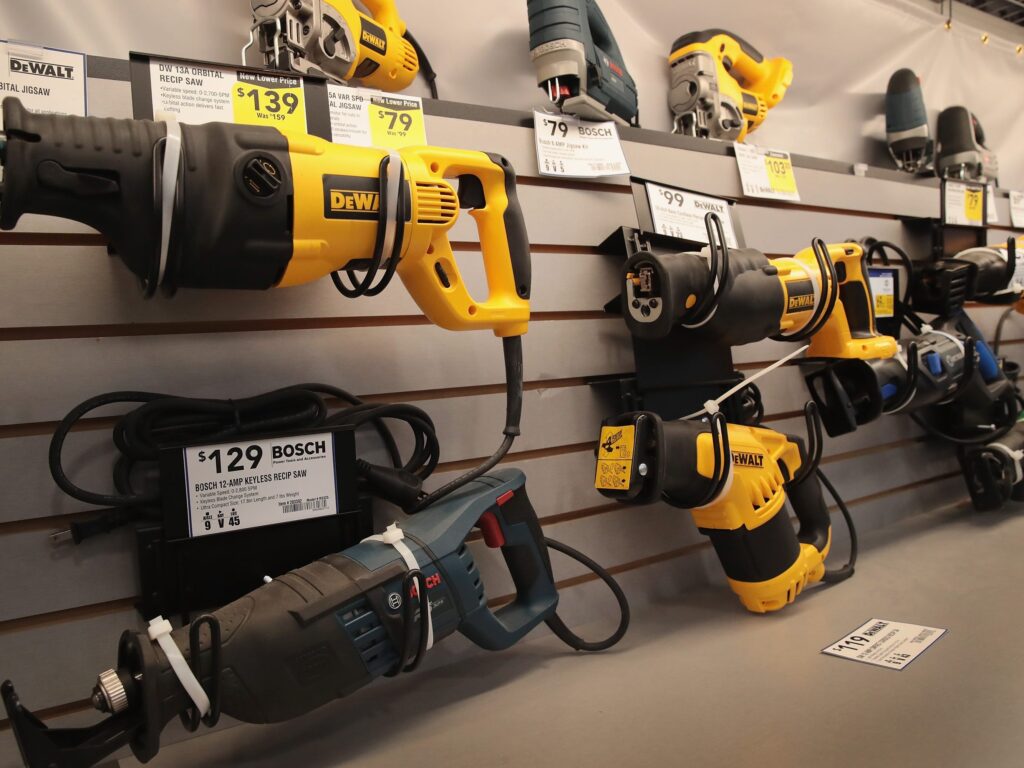- Lowe's is combining RFID and blockchain technologies to ensure stolen products are rendered inoperable.
- The move comes as theft has ballooned into a nearly $100 billion problem for the retail industry.
- Home Depot instituted a similar initiative in 2021 to sell power tools with point-of-sale activation.
Lowe's isn't messing around with shoplifters.
Through Lowe's Innovation Labs, the company is planning to launch an anti-theft initiative, called "Project Unlock," that uses RFID chips and scanners to activate products that are legitimately purchased.
In other words, if a power tool is stolen from Lowe's, it isn't going to work.
"Over the last few years, theft – driven largely by organized groups – has risen for the entire retail industry," Lowe's said in a December 2022 video announcing the initiative. "The net result has been locked-down store experiences that penalize customers."
The company added: "We think there are better ways to curb theft than locking products down."
The initiative comes as retail theft has ballooned into nearly a $100 billion problem for the industry, with companies from Walmart to Target sounding the alarm on retail shrink. For many, the solution to preventing theft has been stowing items away under lock-and-key — but experts have said that measure pushes customers away from stores and reduces sales.
Project Unlock has two main components. First, products are loaded with RFID tags that have unique serial numbers. When customers check out, a scanner reads all tags on the products, and if they have the correct serial number, the product is activated at sale. Otherwise, without this point-of-sale activation, the product is inoperable.
Additionally, Project Unlock focuses on transparent purchase records. More specifically, the company said it is utilizing blockchain technology to create a "secure publicly accessible anonymized record of authentic product purchases."
Essentially, when a product is purchased, it is recorded in the blockchain — or a system in which a record of transactions is maintained across computers that are linked. And if a thief tries to resell stolen goods to other individuals or third-party marketplaces, potential buyers can check to make sure they're not buying a stolen good.
"We see a future in which technologies like Project Unlock can help the entire retail ecosystem create a great environment for our customers," the company said.
Lowe's isn't the first company to get creative with anti-theft measures. In 2021, Home Depot began selling power tools that won't work unless they're properly scanned and activated at the register via Bluetooth technology.
Lowe's didn't immediately respond to Insider's inquiries about when it plans a full rollout of Project Unlock.
